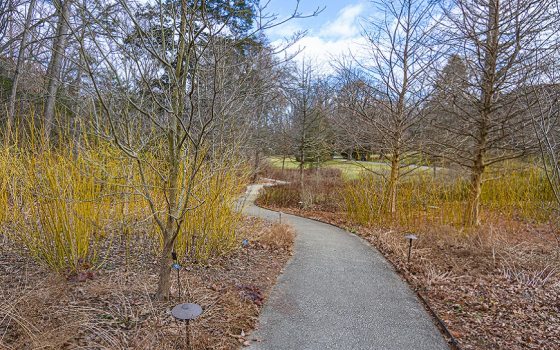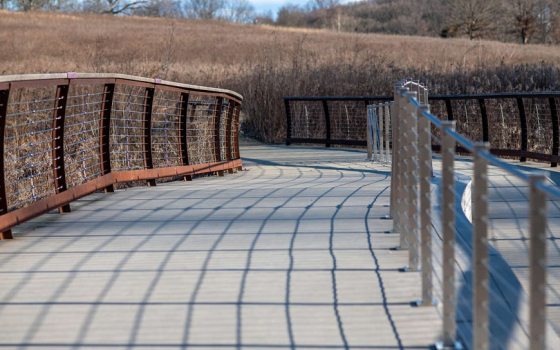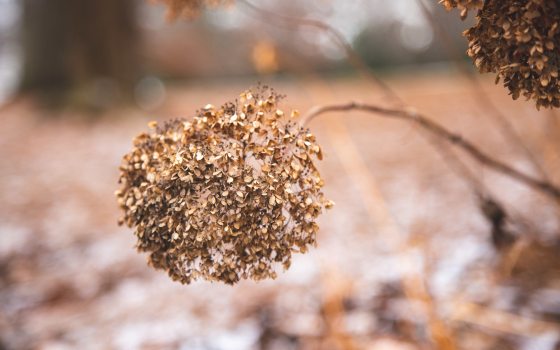Longwood Gardens is a continual source of inspiration. As one of the librarians here at Longwood I delight both in the gardens’ changing beauty as well as the cultural and historical connections that our gardens represent. Often, I am surprised by how powerfully the plants connect us all globally and across time. This delight of discovery drives my curiosity and—not surprisingly for a librarian—to read and learn a bit more. Given Longwood’s current onsite and online exhibition, Voices in the Landscape: Deeply Rooted with Charlotte Blake Alston—a celebration of the strength, resilience, and contributions of the African American community—as well as the start of our 2021 Community Read—in which we ask readers to discover how one finds a passion for nature and explore what can become of that spark— there is undoubtedly much to learn and consider. To help fuel our guests’ journey of discovery, we offer a few suggestions of excellent nature writing, each offering its own perspective of the African American experience, and each a source of inspiration in itself.
The following selections serve as fantastic sources of excellent nature writing, each with its own perspective of the African American experience … and there are many, many more beyond this tiny list. Pick a title (or two) at your local public library or bookstore and find yourself enthralled. Some of these titles can be found via our free Longwood eBook collection, accessible to Longwood Members.
Black Faces Whites Spaces; Reimagining the Relationship of African Americans to the Great Outdoors by Carolyn Finney (University of North Carolina Press, 2014)
Ebook free for Longwood Members
In this book Finney seeks to construct a larger, more inclusive view of the environment while dissecting how race, the American culture, and nature are intertwined. This is a challenging, thought-provoking book. Finney’s writing explores the existence of barriers to nature and presents distinct opportunities to make connections.
Black Nature: Four Centuries of African American Nature Poetry edited by Camille T. Dungy (University of Georgia Press, 2009)
Editor Camille T. Dungy has compiled 180 poems spanning more than 400 years of African American poetry that offer a “new way of thinking about nature writing and writing by black Americans.” This anthology highlights celebrated voices as well as newer artists, presenting them in thematic groupings accompanied by her own insightful essays. Unlike most anthologies, this is one that can be read in its entirety, like a novel, but will also be dipped into again and again for its wise reminder that African Americans have been writing about nature for hundreds of years. Alston incorporates several of the anthology’s poems in her Voices in the Landscape experience.
The Colors of Nature; Culture, Identity, and the Natural World edited by Alison H. Deming and Lauret E. Savoy (Milkweed Editions, 2011)
Ebook free for Longwood Members
Editors Lauret Savoy and Alison Deming collected writings that expand a frame of reference for nature writing beyond the usual Euro-American perspective. The writers included in this book open an appreciation for a broader array of writers on gardens, plants, and nature. The essays are all relatively short (5 to 10 pages) and cover a wide array of topics and cultural perspectives. This is an interesting book to dip into here and there or to read cover to cover.
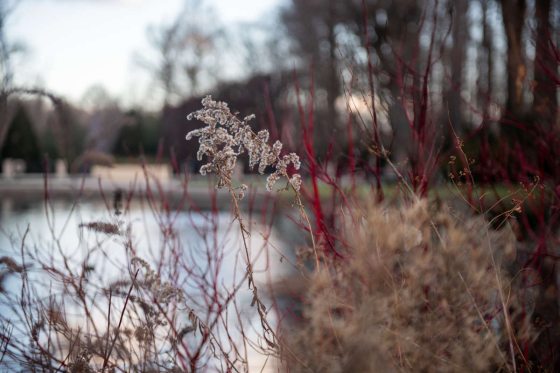
Farming While Black: Soul Fire Farm's Practical Guide to Liberation on the Land by Leah Penniman; foreword by Karen Washington (Chelsea Green Publishing, 2018)
Ebook free for Longwood Members
Farming While Black is devoted to guiding (and inspiring) new farmers as an act of social good. Food deserts exist for communities of color across America. Penniman became determined to create a better path forward. When she and others created Soul Fire Farm, their goal was first grow much needed fresh vegetables and fruit and then help to introduce and educate. The lessons learned from those efforts (and struggles) are the genesis of this book. From that hard work comes this how-to guide for every step, informed by knowledge gained through experience. The love and commitment come through on every page, along with practical advice and plenty of resources for help along the way.
Half My World: The Garden of Anne Spencer, A History and Guide by Rebecca T. Frischkorn and Reuben M. Rainey (Warwick House Publishing, 2003)
Anne Spencer (1901–75) was a Harlem Renaissance poet, librarian, and educator from Lynchburg, Virginia. In her childhood she “sought solitude in woods and fields near her home, collecting wildflowers, listening to the calls of birds, or just sitting on the riverbank alone with her memories and dreams” (p. 12). She and her husband created a lush and thoughtfully designed garden together at their home, which served as creative inspiration for her poetry. She did much of her writing in a tiny cottage office in the garden. This lovely book is filled with details of Spencer’s life and family, descriptions, photos of her garden (now restored), and examples of her powerful poetry.
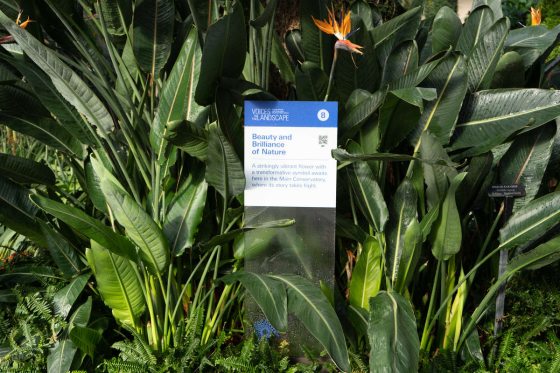
In the Shadow of Slavery: Africa’s Botanical Legacy in the Atlantic World by Judith A. Carney and Richard Nicholas Rosomoff (University of California Press, 2009)
This book shines a light on the food plants that African slaves in the Americas grew for their own sustenance. Many of those plants originally came from Africa, and the skills to grow them were carried by the people transported in the slave ships. The authors demonstrate the importance of African plants and African people in the development of the botanical legacy of the Atlantic area—a story that is not often told.
Trace: Memory, History, Race, and the American Landscape by Lauret Edith Savoy (Counterpoint Press, 2016)
Ebook free for Longwood Members
Trace is a powerful exploration of the American landscape through the lens of Lauret Savoy’s personal point of view. As a scholar she explores the beautiful as well as painful episodes of the American landscape, especially for African Americans and Native Americans. To Savoy the American landscape is more than trees, mountains, and valleys. It is rich in meanings accumulated over time through human activity, personal memory, history, and spirit. In her highly readable prose, Savoy takes the reader on journeys across America. And, with many journeys of discovery, the past informs the present. This book is a thought-provoking and original work of nonfiction.
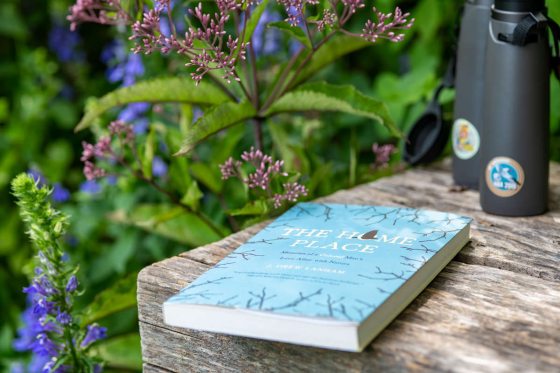
The Home Place: Memoirs of a Colored Man’s Love Affair with Nature by Drew Lanham (Milkweed Editions, 2017)
Ebook free for Longwood Members
The featured adult title for this year’s Community Read, Clemson University professor and devoted birdwatcher Drew Lanham’s memoir is poetic and heartfelt. It draws the reader into his native South Carolina landscape, and parallels Aldo Leopold’s A Sand County Almanac and Hope Jahren’s Lab Girl in many ways (both were previous Longwood Gardens Community Read titles). We invite you to explore Lanham’s writing with us and participate in one of the many activities presented by our Community Read partners. This May, we will present two virtual Community Read events featuring Lanham … more information coming soon!
I truly hope that you enjoy these books. I want to hear from you! After you read any of these selections, please reach out and share your thoughts by sending an email to library@longwoodgardens.org. Happy reading (and discovering)!
